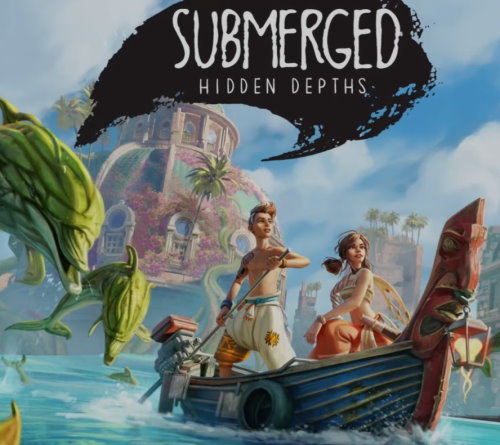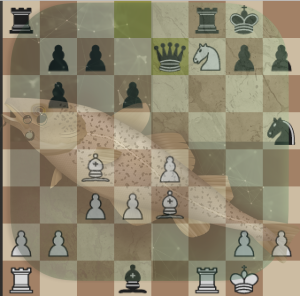Falling in love when I was twelve

On May 8th 1989 the Star Trek: The Next Generation episode "Q Who?" was released. Not only did it feature Jon de Lancie's delicious interpretation of the being Q, but it introduced for the first time the Borg. Now, the concept of the Borg is not that original: a cybernetic race bent on absorbing everything useful and destroying any enemy or obstacle in their path. They were contrasting the liberal individualism of the United Federation of Planets with a hive mind that connected all Borg to the point where they had no identity. At the time their purpose in the series was to inspire terror: they cared not for damage, they felt no fear or pain, had no interest in negotiation or communication and they were unstoppable in their goal of assimilating the Enterprise. And they were terrifying!
Then they were brought again for the last episode of season 3 and the continuation in the first episode of season 4. That cliffhanger! The episodes had the title "The Best of Both Worlds". Keep that in mind, because I think it hints at the conundrum the Borg represent.
I fell in love with the concept of the Borg. The more I thought about it, the more intriguing they became. They exposed the mindless assumptions that most people take for granted because they were drilled into them by parents and the education system from the earliest age. It made me think about my own identity, reflect on the future and direction of humanity and, in the end, forced me to ask the question "Are the Borg really bad?".
On a very basic social organization level, it seemed like the Borg were the ultimate tyrannical communists, denying the option of individual thought and forcing everyone to work for the collective. But going a bit further with it, one realized that they stood at the intersection of pure communism and pure democracy. There was no actual tyrant forcing people to act against their will, instead there were part of a mind in which all people were represented, to the point where individuality became meaningless at best and detrimental to the whole at worst. The ultimate tyranny was that of the majority, perhaps.
On a moral level, the forceful absorption of alien races and the destruction of their cultures was abhorrent, but in the Borg philosophy it was liberating people from the burden of individuality, improving the collective, eliminating potential threats and possibly offering each assimilated individual a form of immortality. Many cultures on Earth, including the United States, proceeded on forcing their philosophy on the world in the name of liberty and better lives. Can you imagine a Borg collective that would have absorbed some parts of alien cultures, not destroying the rest, but just slowly infiltrating, using promises of a better life? How ironic would that have been? Give us your tired, your poor, your sick, your dying, your huddled masses yearning to breathe free, the wretched refuse of your teeming shore and will make them Borg and give them new life.
On a technological level the Borg were supreme. If it weren't for the pesky need to have our heroes prevail, humanity would have stood no chance whatsoever. It was one of the first mainstream TV depictions of cosmic horror, the feeling that comes with the realization the universe is indifferent to your existence and your maximum possible contribution completely insignificant, and I was loving it! But isn't it the same thing with some advanced nations on Earth, acting all mighty and moral while exploiting other nations while keeping them in abject poverty?
On a philosophical level the Borg were awesome. They adapted to threats, turned adversity into strength, knowledge into power, all the while yearning and actively pursuing the improvement of their species. A fascist vibe, for sure, but isn't fascism so attractive to some people that it brings the hardest fanaticism to the surface? Isn't that the logic of every nation at war? Us against them?
Were the Borg the ultimate baddies or were they the cruelest satire of our own civilization? It was becoming apparent that in order to make them feel more like enemies and less than mirrors of ourselves the writers of the show were piling up all kind of incongruous defects on the species. The cybernetic appendages were hideous, looked painful and corrupting the beauty of the flesh. Their actions veered from utilitarian to cruel. The Borg drones acted like mindless clumsy robots, uncaringly wasting life after life just to adapt to simple technologies like phaser fire.
When Seven of Nine was introduced in Voyager, there were some really intriguing explorations of the Borg ethos. After being "liberated" from the collective, Janeway hypocritically offered her the choice to return to being a Borg, and Seven wanted back. Surprised, Janeway revealed that she had no intention whatsoever to honor her promise or the wishes of Seven. Resistance was futile.
Seven was proud to be Borg: fearless, efficient, ready to adapt to anything and sacrifice everything for her group. If all Borg felt the same, then they were a species of stoic heroes, something that we humans have always honored and aspired to. The irony of freeing someone from a life of selfless service.
Most other depictions of the Borg in the Star Trek universe were designed to lazily use the template of the "bad guy" in situations were the Borg were either not needed or would have easily won if not nerfed by silly plot holes, but there were a few glimpses of what the Borg could have really been.
It was obvious that no one was interested in keeping the Borg as a believable threat. The "Borg queen" was introduced to make all attractive qualities of the collective simple consequences of an arbitrary individual, a responsible guilty party and a single point of failure to the entire Borg species. When writers did that, it was clear they didn't understand what the Borg were about, were not interested in exploring them further as mirrors of ourselves and were ready to destroy them with the silly trope of "find the brain, blow it up", the cesspool that all lazy sci-fi ends up in.
My twelve year old me was full of questions and fantastical ideas after meeting the Borg. I was imagining a parallel universe where Star Trek was all about the Federation trying to hold back the Borg. When Star Trek: Deep Space 9 came about and then the Dominion War, I decried that they could have done that with the Borg instead, exploring and continuously redefining the ideals of humanity on the background of possible assimilation. I still dream of such a franchise. It seems that we always start to do it, but chicken out when it matters most: Star Trek and the Borg, Starship Troopers and the bugs, Stargate and the Goa'uld, Starcraft and the Zerg. We seem incapable of sustaining a prolonged conflict against a species that denies our choice of identity, whether in real life or in fantasy. Wouldn't that be most apropos of modern times?










